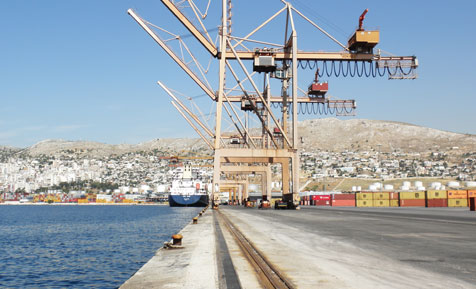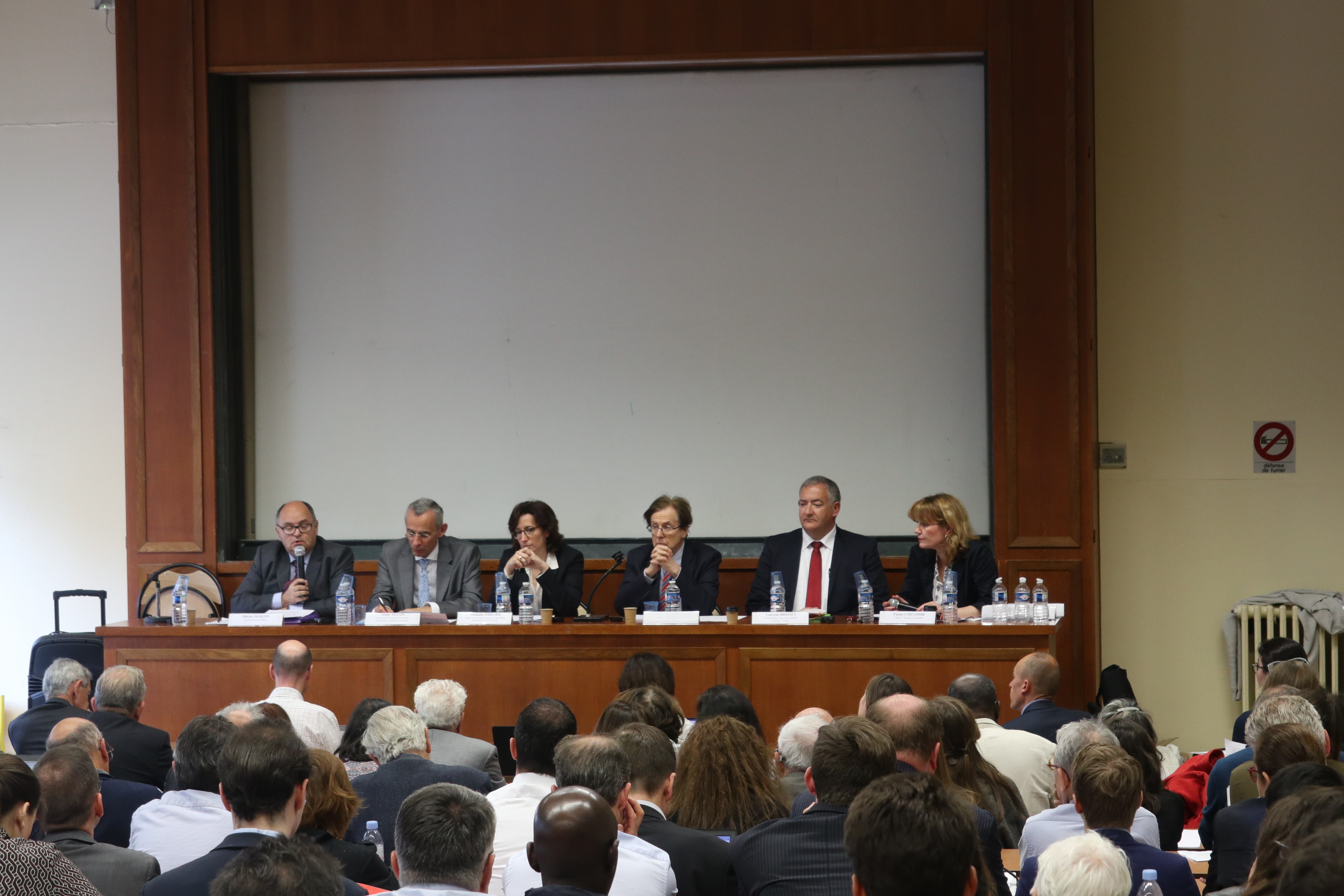Europe beware! The “crunch” of the crisis is there. China is watching, the “others” too…
 (BRUXELLES2, opinion) Until now, the crisis was essentially financial or debt-related; today it is becoming political and risks becoming strategic tomorrow. Europe is today in the middle of the ford, at a point of crystallization. We are at the "crunch" of the crisis. Europe therefore has a fairly simple but crucial choice: either continue to manage day by day, sink into a crisis that will become both harder economically, socially and more politically blocked; or try to find solutions that change the game, turn the table upside down, get out of the context where everyone is blocking everyone. Either impoverish or react. And to react, there are a few questions to be resolved beforehand which are not technical but rather political.
(BRUXELLES2, opinion) Until now, the crisis was essentially financial or debt-related; today it is becoming political and risks becoming strategic tomorrow. Europe is today in the middle of the ford, at a point of crystallization. We are at the "crunch" of the crisis. Europe therefore has a fairly simple but crucial choice: either continue to manage day by day, sink into a crisis that will become both harder economically, socially and more politically blocked; or try to find solutions that change the game, turn the table upside down, get out of the context where everyone is blocking everyone. Either impoverish or react. And to react, there are a few questions to be resolved beforehand which are not technical but rather political.
Political and democratic stability
The policy followed up to now with wage cuts as a result not only seems to be an economic error but presents a very real political and social danger. Developing large, forward-looking plans that could have, at best, an effect in a few years is no doubt "sympathetic" but about as useless as asking the polytrauma patient with respiratory failure if he prefers a room to a or two beds or blue or pink crutches for his rehabilitation. We must be able to breathe fresh air immediately, to prevent the current quarter and the following two from leading to an anemic economy, to avoid the contamination of austerity and recession. Otherwise, the valve will blow. And the energy of despair win other countries. The "Greek" situation can be repeated at the ballot box in several countries, not automatically "desperate" economically (the Netherlands for example... Some other countries can be tempted by a nationalist spree (Slovakia, Hungary, Romania. ..) Having a country in political instability is manageable... having half a dozen becomes much more dangerous.To impose certain reforms, hard to swallow, it is necessary to proclaim a quasi "state of emergency". Is Europe ready to accept it?
By strengthening what is called governance, by establishing and verifying common rules in terms of the national budget, a democratic counterpart must be established. The transfer of powers must be accompanied by a democratic transfer. Is it through the election by universal suffrage of the President of the European Commission as the German CDU wishes? Is it through the establishment of a "euro zone" commission or chamber within the European Parliament? ... Whatever the solution, there must be real democratic control. The proposal of the Van Rompuy - Barroso paper tabled on the table of the European Council tomorrow (Thursday 28 June) is not enough! We cannot just "consult" or "inform", we must give the representatives of the people the power to be enlightened, to evaluate, to debate and finally to decide. It will not be easy or obvious to ensure this necessary democratic transition which presupposes, more or less, the revision of the existing Treaties.
Control and responsibility
Nor can Europe continue to absolve itself of all responsibility, whether in the "political circus" in Greece or in the current crisis. It cannot impose reforms, no doubt painful, perhaps necessary, without assuming a legitimate share of responsibility as a corollary. It is the European Commission which in fact co-manages part of the reforms, in their entire sequence, by setting up a reform plan on the one hand, by having in place a team of senior civil servants responsible in all the ministries for monitoring the reforms on the other hand. Like yesterday, it was the European Commission which also had the function of monitoring deficits. Until today, no sanction (of a political nature) has intervened after this failure of surveillance. Unlike the other Member States, where the link of European responsibility is relatively tight, in Athens, there is a direct link.
In a "normal" regime, of government from the ballot box, the government would resign or at least hand over a question of confidence to its voters. The European system has not provided for this hypothesis (but has not prohibited it either). And the Commission does not seem to want to take the path of this assumption of responsibility. In the absence of this safety "valve", other solutions must be found, a way out proposed. It is also undoubtedly necessary to operate a political change, to give, very quickly some necessary bursts to the economy, to be to gain some half-points of growth.
Strategic vision
Let us also take care that the crisis does not become strategic from "politics". Europe is risking its future, its place in the world. If it does not recover quickly, dynamically... and alone, it will find itself in the economic situation after 1945, having to beg international aid from each other to recover. As a result, it will have to alienate part of its economic autonomy not only in the short but also in the medium or long term. We can say to ourselves that this is the logic of globalisation... We can also consider that Europe has the means, both intellectual and financial, to manage on its own.
Should Greece's future depend on help from China, Qatar or Brazil? A present China which observes and buys back when it can, depending on privatization or the withdrawal of a key shareholder, there a shipyard, there an industry... Is it the destiny of Cyprus to make the rounds surrounding and more distant countries (Russia, China...) to beg for aid that will not be tied, to which it will not be required to alienate itself economically and politically? And Spain, tomorrow, will it not be tempted to follow a similar path, with Latin American countries, for example? Several European countries thus find themselves in the same mechanism as Third World countries, preferring the aid of less demanding countries, less attentive to the conditions. Overall, it's not bothersome. We are in a global framework. But Europe is thus alienating the means of its independence when it comes to strategic assets. We are in an emergency situation today. It is important to find emergency solutions, and not "two bullets" patches pulled out of the drawers before a time that seems so distant, when Europe had, overall, few problems...
Read also: The world is changing fast, Europe risks losing influence, warns Danish Mae

